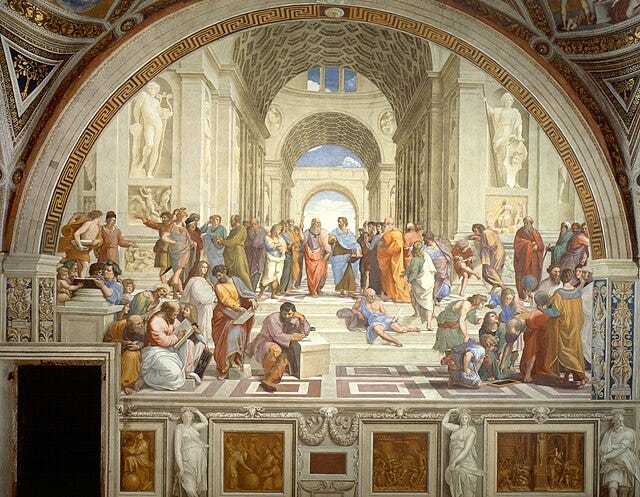“Don't you know that to be covetous of honor and covetous of money is said to be and is a reproach?” “I do,” he said. “Well, then,” I said, “that is why the good are not willing to rule either for the sake of money or of honor. They do not wish to collect pay openly for their service of rule and be styled hirelings nor to take it by stealth from their office and be called thieves, nor yet for the sake of honor, for they are not covetous of honor. So there must be imposed some compulsion and penalty to constrain them to rule if they are to consent to hold office. That is perhaps why to seek office oneself and not await compulsion is thought disgraceful. But the chief penalty is to be governed by someone worse if one will not themself hold office and rule.”
-Plato, Republic
We wish it weren’t necessary to write this letter. We didn’t anticipate that global events would require it, but here we are. Today is Election Day in the United States, and it is important that goodstead, which strives to be non-partisan, do its part to contribute to the maintenance of the Republic that allows it to prosper and grow in its mission to enable everyone to achieve financial independence.
This is why goodstead has taken for its logo the White Pine (pinus strobus), the Haudenosaunee “Tree of Peace” about which Henry David Thoreau justly wrote, “There is no finer tree.” Prior to the Boston Tea Party, this tree was at the center of the Pine Tree Riot which took place in present day New Hampshire. The British King had declared that all White Pine trees, whose natural straightness made them ideal for use as masts and booms in shipbuilding, were property of the Crown. When the Sherriff was sent to arrest a mill owner that had defied the King’s law, his fellow townspeople rallied to the defense of their countryman and ran the Sherriff out of town.
Today, Americans go to the polls to cast their votes for their elected representatives. Unusually, the media narrative that the election is the most important in a generation is actually true. The choice before the Citizens of the United States is between a man who would be King, and the rule of law. That one candidate would disregard and disrupt the constitutional order has already been demonstrated by his earlier attempt to seize power. He is manifestly unfit to hold the sacred trust that is the Presidency of the United States, and all Americans who profess to believe in the rule of law have but one choice in this election.
Our most recent Nobel Prize in Economics winners have amply demonstrated that economic prosperity attends nations with strong institutions. This election, we find compelling rationales to vote for democratic and Democratic candidates on at least two bases: first, the preservation and expansion of the rights of its Citizenry; and second, the maintenance and increase of the wealth of the same. For tyrants understand the First Rule of Power in a way that democrats tend to forget: the First Rule of Power is that Power is Power. Corollary to the First Rule of Power is that only Power is Power; to mistake anything that is not Power for Power itself is to commit a Cardinal Error, a category mistake.
Power is the ability to enforce one's will, to have one's way. Pursuant to the First Rule is that it is always a Cardinal Error to mistake Money for Power. Money is subsidiary to Power. It is often a complement, but never a substitute. Ask the common person if they have ever heard of Julius Caesar, and they will likely respond in the affirmative; ask them who Marcus Crassus was, and you will receive only a blank stare.
When power is entrusted in the hands of bad men, they use it to their own ends. It is all that they are capable of doing. No rights—including property rights—are safe within their compass. This is why it is necessary that democrats guard their Power jealously, even more than they do their wealth. Americans who value their wealth as well as their autonomy would do well to remember this simple fact as they head to the polls today to determine the fate of the nation.





So true. History WILL repeat itself one way or another.